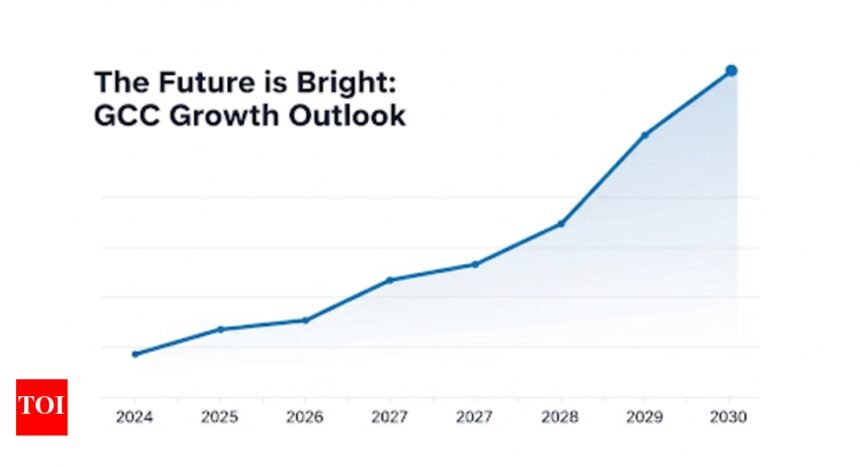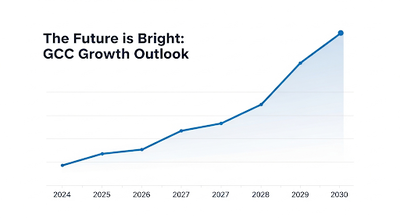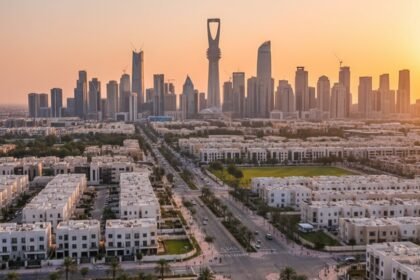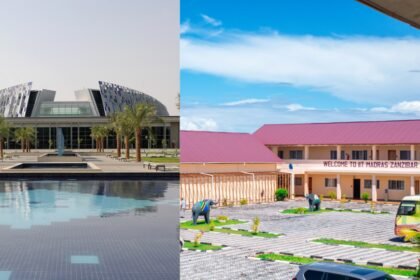TL;DR:
GCC real GDP growth projected at 3.2% in 2025, rising to 4.5% in 2026, up from 1.7% in 2024.- Growth fueled by easing OPEC+ supply cuts and robust expansion in non-oil sectors particularly private consumption, investment, and diversification efforts.
- Effective fiscal spending in non‑hydrocarbon sectors supports economic stability, though returns per dollar are modest.
- Governments are urged to balance countercyclical investment with ongoing reforms to maximize employment, sustainability, and diversification outcomes.
According to the World Bank‘s June 19, 2025 Gulf Economic Update, the GCC economic outlook is brightening. With real GDP projected to grow 3.2% in 2025 and 4.5% in 2026, the region is emerging from sluggish conditions that saw growth dip to 1.7% in 2024. As oil supply conditions ease and fiscal buffers regenerate, policymakers face crucial choices about how to deploy financial resources to support diversification, job creation, and long-term prosperity.
What’s Driving Growth?
The rollback of OPEC+ production cuts in early 2025 is easing supply constraints, boosting oil-sector activity and government revenues. This backdrop lays the foundation for renewed fiscal flexibility.
- b. Non‑Oil Sector Resilience
The non-hydrocarbon economy grew 3.7% in 2024, driven by rising private spending, infrastructure investment, and ongoing economic reforms. Projected fiscal efforts, particularly in infrastructure and public services, are expected to further support meaningful, though measured, non-oil sector expansion.
Fiscal Policy: Fueling Growth Carefully
The World Bank’s analysis highlights that fiscal multipliers in the GCC are positive but generally under one, meaning each additional dollar of government spending contributes to growth but not in a one-to-one ratio. Still, in times of recession, such interventions become more impactful. This underscores the role of countercyclical spending, boosting fiscal outlays during downturns to stabilize the economy, and rolling back in expansions to avoid overheating. Key insights include:
- Public investment in infrastructure, education, and health has stabilized growth cycles.
- Fiscal reforms are needed to improve capital allocation efficiency and maximize ROI.
Policy Imperatives for Tomorrow
To navigate the next phase of growth, the World Bank emphasizes:Strategic Public Spending Governments should design spending that supports diversification goals such as logistics hubs, digital infrastructure, and renewable energy while maintaining fiscal discipline.Effective Reforms Removing barriers to private investment, improving public-sector productivity, and deepening human capital development will allow GCC economies to reap stronger long-term dividends.
Risks and Vulnerabilities
Despite solid outlooks, challenges remain:
- Global trade conflicts or economic slowdown may dampen exports and FDI.
- Oil price volatility, although currently supportive, could re-emerge.
- Non-oil sector investments may yield slower returns if not managed strategically.
- Long-term migration, climate, and demographic dynamics demand careful policy calibration.
GCC Countries Outlook as per World Bank
- Bahrain: Growth is predicted to stabilize at 3.5% in 2025 after two years of decline. The improvement relative to 2024 (3% growth) is driven by the completion of BAPCO refinery upgrades and robust non-hydrocarbon growth in sectors supported by Bahrain’s Economic Vision 2030, including infrastructure, logistics, financial technology, and tourism. In 2026-2027, overall growth is expected to average 2.9% thanks to continued non-hydrocarbon growth and the expansion of Sitra oil refinery.
- Kuwait: Economic growth is expected to recover significantly and reach 2.2% in 2025, compared to -2.9% in 2024 and -3.6% in 2023. The phase out of OPEC+ production caps and the expansion of non-hydrocarbon sectors supported by credit growth and large infrastructure projects explains this positive outlook. Over 2026-2027, economic growth is predicted to remain stable at 2.7%, while long-term economic outlooks hinge on the successful implementation of structural reforms and diversification efforts.
- Oman: Growth is expected to gradually accelerate to 3% in 2025 (compared to 1.7% in 2024), 3.7% in 2026 and 4% in 2027. The rebound in oil production (2.1% oil GDP growth in 2025), along with solid non-hydrocarbon growth (3.4%) driven by robust growth in construction, manufacturing and services is expected to drive these sustained improvements in growth prospects.
Qatar : Economic growth is projected to remain stable at 2.4% in 2025 (2.6% in 2024), before accelerating to an average of 6.5% in 2026-2027 due to the expansion of LNG capacity. These improved prospects are supported by strong non-hydrocarbon growth, particularly in education, tourism, and services. The hydrocarbon sector is expected to growth timidly in 2025 (0.9%), before undergoing a significant boost in 2026 thanks to the North Field LNG expansion coming online, supporting a 40% rise in LNG output. Non-hydrocarbon growth is expected to remain robust thanks to infrastructure upgrades and international investments.
Saudi Arabia : Economic growth is projected to continue recovering after declining to 1.3% in 2023, rising to 2.8% in 2025 and an average of 4.6% in 2026-2027. The phasing out of OPEC+ voluntary production cuts is expected to take hydrocarbon GDP growth to 6.7% in 2026 and 6.1% in 2027. Meanwhile, non-oil GDP is expected to continue rising steadily, by 3.6% on average between 2025 and 2027, as the Kingdom pursues its economic diversification agenda under Vision 2030.
- United Arab Emirates: Economic growth is expected to maintain its ascending trend to reach 4.6% in 2025 and stabilize at 4.9% in 2026 and 2027. Non-oil sectors are bound to remain a key engine of growth (4.9% growth in 2025), thanks to targeted public investment, governance improvements, and expanding external partnerships. Meanwhile, the normalization of oil production levels thanks to the phasing out of OPEC+ voluntary cuts is expected to support this ascending trend.
Kuwait, Saudi Arabia, UAE, Oman, Qatar, and Bahrain are at a pivotal juncture. With growth accelerating to 3.2% in 2025 and 4.5% in 2026, the GCC has momentum but how governments spend, invest, and reform will determine whether this prosperity endures. Identifying high-impact, diversification-aligned expenditures while maintaining fiscal resilience is the roadmap to a thriving Gulf future.







